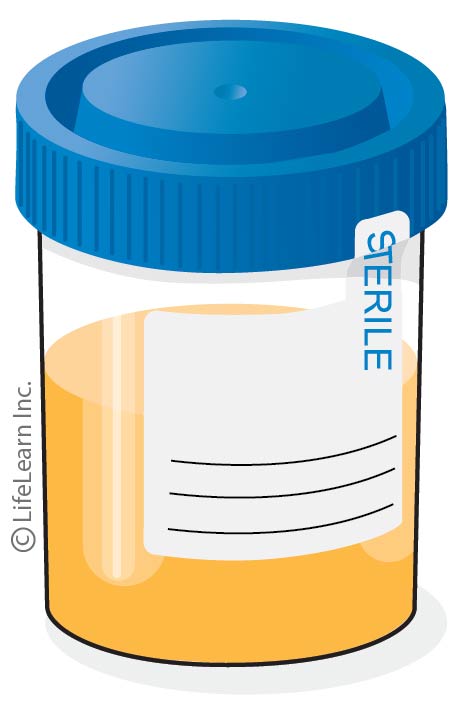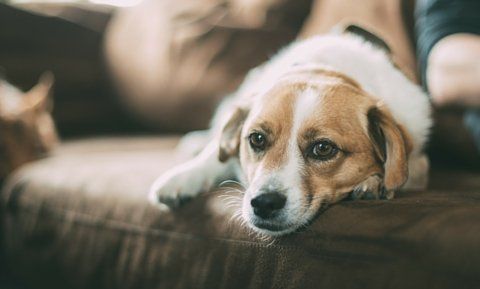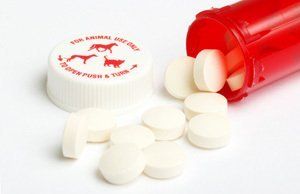Acne in Dogs
websitebuilder • May 27, 2019

What is canine acne?
Canine acne is an inflammatory disorder of the lips and the skin of the muzzle. Dogs with mild cases of acne often have red bumps or pustules (pimples) on their skin. This can, in more severe cases, lead to generalized swelling of the lips and muzzle, bleeding wounds, or scabs on the face. Left untreated, severe cases of canine acne can result in permanent scarring.
How will my veterinarian diagnose canine acne?
In most cases, your veterinarian can diagnose acne on the basis of clinical appearance. The characteristic skin lesions, distributed around the lips and muzzle, are relatively specific for this condition.
In some cases, however, further diagnostics may be required to confirm the diagnosis. Your veterinarian may recommend a biopsy of the skin to confirm the diagnosis of acne and rule out other skin disorders. Additionally, your veterinarian may recommend a bacterial culture and sensitivity in the case of infection, which can help identify the bacteria responsible for infection and appropriate antibiotics for treatment.
Why do dogs develop acne?
The underlying cause of canine acne is not fully understood. Canine acne was previously thought to be related to human acne, which is primarily hormone-induced, but more recent evidence has suggested that this is not the case.
Genetic predisposition, however, is thought to play an important role. Commonly-affected breeds include Boxers, English Bulldogs, Great Danes, German Shorthaired Pointers, Weimaraners, Mastiffs, Rottweilers, and Doberman Pinschers. Other breeds can be affected, though they are affected at lower rates than these predisposed breeds.
"Although the inflammation associated with canine acne is often 'non-infected' in the early stages, bacteria can easily colonize this damaged skin and lead to infection."
Many cases of canine acne are thought to be triggered by trauma to the skin of the chin or muzzle. This trauma can cause hairs to break off near the skin's surface, leading to inflammation within the hair follicle and eventual rupture of the hair follicle. When the hair follicle ruptures, its contents are released into the surrounding skin. This creates further inflammation within the skin, as the contents of the hair follicles are recognized as foreign by the surrounding tissues. Although the inflammation associated with canine acne is often sterile (non-infected) in the early stages, bacteria can easily colonize this damaged skin and lead to infection.
In some cases, acne may be associated with underlying skin conditions. Your veterinarian will assess your dog for possible food allergies or environmental allergies. If these allergies are suspected, managing the allergies may decrease acne. Additionally, your veterinarian will use a physical exam and/or laboratory tests to rule out parasites as a factor contributing to the acne.
What care will my cat require after treatment for arsenic poisoning?
Your veterinarian should monitor the kidneys, the liver, and the electrolytes during and after treatment. If your pet makes a full recovery, no further aftercare is needed.
This client information sheet is based on material written by: Rania Gollakner, BS DVM
© Copyright 2018 LifeLearn Inc. Used and/or modified with permission under license.

Acetazolamide (brand names: Diamox®) is a diuretic and antiglaucoma agent, used primarily to treat glaucoma (increased eye pressure), syringomyelia (cyst that affects nervous system), and metabolic alkalosis. Its use in cats and dogs to treat glaucoma, syringomyelia, or metabolic alkalosis is ' off label ' or ' extra label '. Many drugs are commonly prescribed for off label use in veterinary medicine. In these instances, follow your veterinarian’s directions and cautions very carefully as their directions may be significantly different from those on the label.



